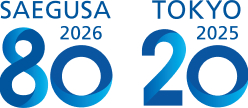[January 2020]Japan IPHC Issues Sanofi/Amgen Decision
2020.02
In the Japanese court case H31, Ne-10041, decided October 30, 2019, the Intellectual Property High Court (IPHC) disregarded Sanofi’s arguments that the scope of protection conferred by Amgen’s antibody patent claim functionally defined by the phrases “capable of neutralizing the binding between PCSK9 and LDLR” and “competing for binding to PCSK9 with the reference antibodies 1 and 2,” should be limited to specific antibodies actually demonstrated to have these functions in the specification as filed, and a reasonable range of variants thereof.
The IPHC took the position that, rather, whether the scope of a claim in question should be limited to only cover embodiments the skilled person could have practiced in view of the specification as filed should be considered a support and enablement requirement-related issue. The IPHC determined that these requirements are met, stating that in light of the guidance provided in the specification as filed, the skilled person could have obtained further monoclonal antibodies, in addition to those described in the patent, that have the above functions.
Some local practitioners are concerned that this decision will considerably decrease the foreseeability of infringement of this kind of functionally defined claim directed to antibodies.


